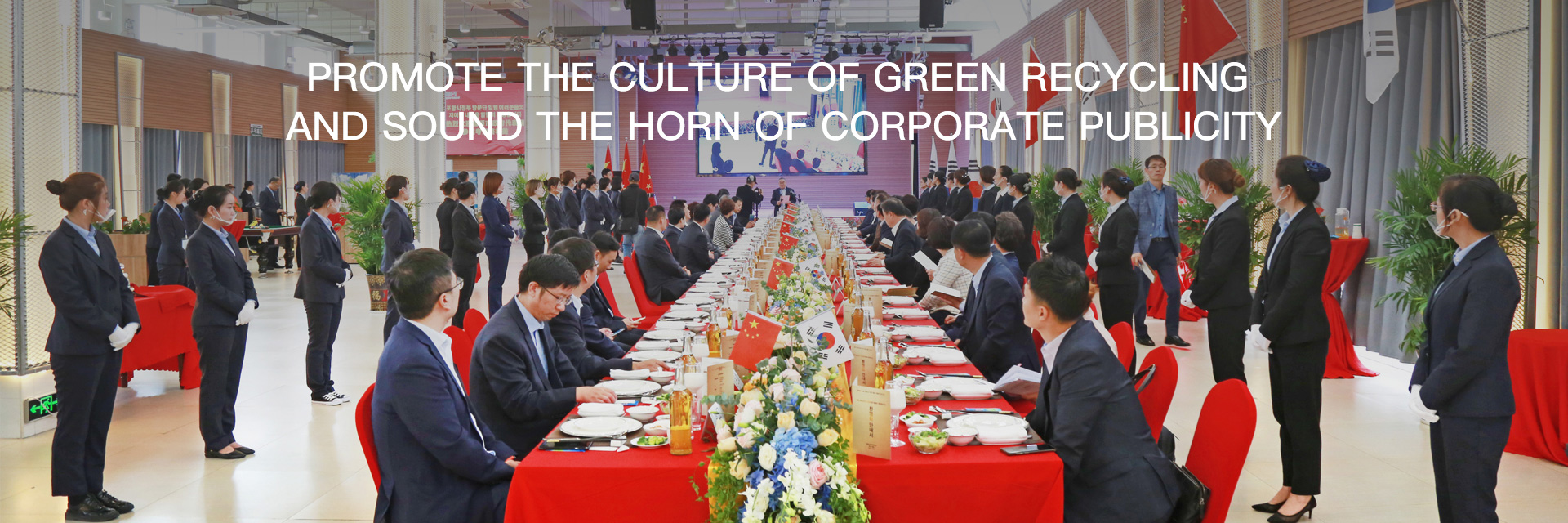

Bandung, a city that carries the spirit of unity, friendship, and cooperation. On May 25, the inaugural Global Summit on High-Quality Belt and Road Cooperation, co-hosted by the United Nations Global Compact (UNGC) and the Indonesian government, opened in Jakarta, Indonesia. At the summit, two initiatives sponsored by Chinese enterprise GEM—the “GEM–ITB–CSU” China–Indonesia Joint Research Laboratory for New Energy Materials and Metallurgy Engineering Technology (hereinafter referred to as the “Bandung Joint Laboratory”) and the “GEM–UNU” Faculty of Future Metallurgy (hereinafter referred to as the “Faculty of Future Metallurgy”)—were officially released to the global audience as the first science and culture collaboration pilot projects under the UNGC Belt and Road Initiative Action Platform. These pioneering initiatives are designed to empower the Belt and Road’s sustainable development through talent training and technological advancement. This marks a major achievement in Chinese science and technology under the Belt and Road Initiative, delivering a powerful message of innovation and collaboration for global sustainability.
Liu Meng, UNGC Representative in China, stated that GEM’s partnership with Indonesia in talent development is a model case of how businesses can drive innovation and sustainable development along the Belt and Road. It reflects the traditional Chinese wisdom that teaching people to fish is better than giving them fish and demonstrates a deep commitment to high-quality Belt and Road cooperation.
Professor Xu Kaihua, Founder and Chairman of GEM, was invited to join the UNGC Belt and Road Initiative Platform High-Level Steering Committee, becoming one of the ten distinguished global entrepreneurs on the committee.
▲Promotional Film of Bandung Joint Research Laboratory
▲Promotional Film of Faculty of Future Metallurgy
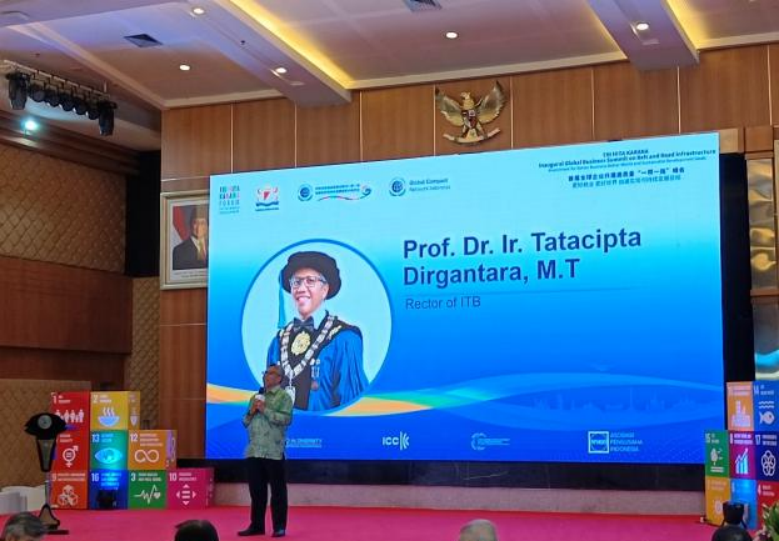
▲ITB Rector Tatacipta Introduces the “GEM–ITB–CSU” Bandung Joint Laboratory
Prof. Tatacipta Dirgantara, Rector of Bandung Institute of Technology (ITB), expressed heartfelt thanks to Professor Xu Kaihua and GEM for their sincere support of ITB. He emphasized that the Bandung Joint Laboratory has enabled significant breakthroughs in metallurgical and new energy materials research at ITB, and that the trilateral cooperation among GEM, ITB, and CSU, as a flagship Belt and Road initiative, will foster deeper university-industry collaboration in the future.
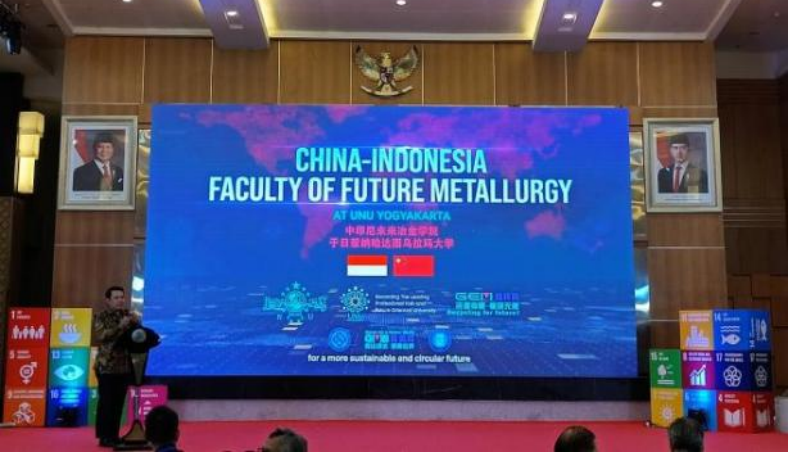
▲UNU Rector Widya Introduces the Faculty of Future Metallurgy
Widya Priyahita Pudjibudojo, Rector of UNU Yogyakarta, introduced the GEM-invested Faculty of Future Metallurgy as a world-leading comprehensive center focusing on hydrometallurgy education, research, and policy. Co-established by the Chinese and Indonesian governments and partnered with GEM — a top-tier global company in urban mining and green hydrometallurgy — the faculty represents a pioneering effort to train the next generation of metallurgical professionals. Its goal is to enhance the competitiveness of the metallurgical industry in Indonesia, the region, and globally through technological innovation, knowledge integration, and sustainable development. UNU extended heartfelt gratitude to Professor Xu Kaihua and GEM, believing that this initiative will mark a significant step forward in metallurgical education and sustainable industrial development in both countries.
Why Did GEM Build a World-Class Lab in Indonesia?
At the global launch ceremony for the Bandung Joint Laboratory and the Faculty of Future Metallurgy, Professor Xu explained the reason: “Indonesia is a hotspot for Chinese investment. While Chinese enterprises benefit from development in Indonesia, what should they leave behind?” Indonesia is rich in mineral resources but lacks advanced technologies and skilled talent in metallurgy. His answer: Leave behind science and culture. Let Chinese technology and education benefit Indonesia — a fair exchange of give and take. To this end, GEM invested USD 30 million to establish a world-class research platform in partnership with ITB and CSU. The Bandung Joint Laboratory comprises 12 specialized labs and two engineering technology centers, equipped with over 300 cutting-edge instruments. It can support R&D in mining utilization, new energy materials, recycling, environmental governance, and sustainable development.
What Will the Bandung Joint Laboratory Bring to Indonesia and the World?
According to Professor Xu, the Joint Laboratory will become a major high-tech research base and a cradle for top engineering talent under the Belt and Road Initiative, driving high-quality cooperation forward.
Professor Xu Kaihua introduced that after eight months of operational practice, over 30 master's and doctoral engineering students and postdoctoral researchers have conducted research at the Joint Laboratory. They have worked on more than 30 research projects and filed over 150 core patents related to laterite nickel ore and its downstream new energy industry chain. Additionally, more than 1,000 scientists and engineers from over 10 countries, including China, Indonesia, Germany, Canada, Italy, Australia, Japan, Malaysia, and Singapore, have visited for observation and exchange, demonstrating the success of China's innovative model under the Belt and Road Initiative.
Professor Xu Kaihua also introduced three major goals of the Bandung Joint Laboratory by 2030.
1. Deliver World-Class Achievements: Produce over 100 innovations per year; apply for no fewer than 500 international patents annually, reaching a total of 3,000 by 2030.
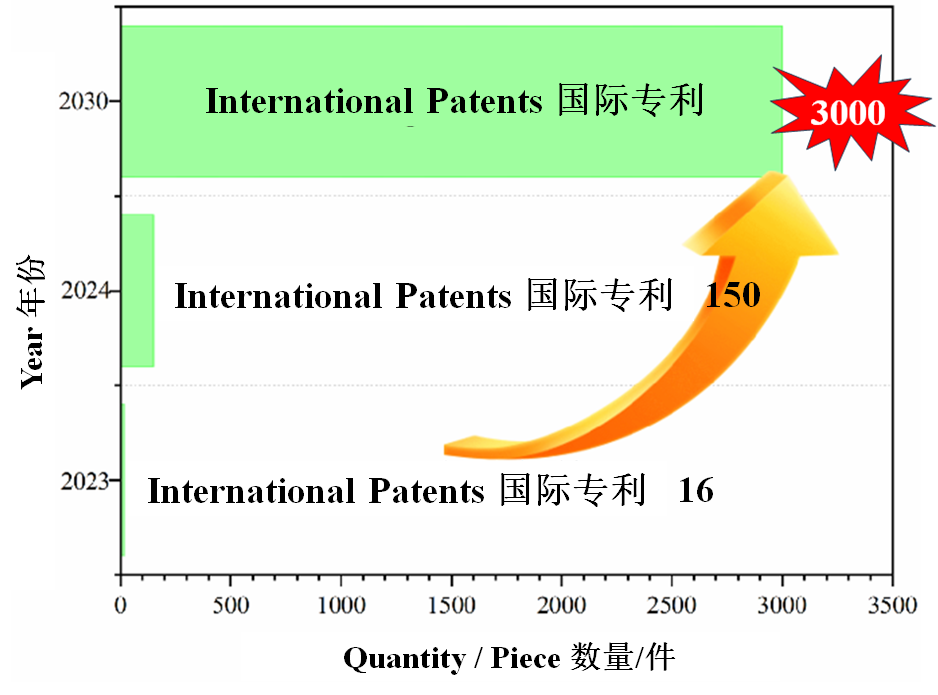
2. Cultivate Top Talent: Launch the “Hundred-Thousand-Ten Thousand” plan — train 100 PhDs, 1,000 master's students, and 10,000 technical experts to support Indonesia’s “Golden Indonesia 2045” vision.
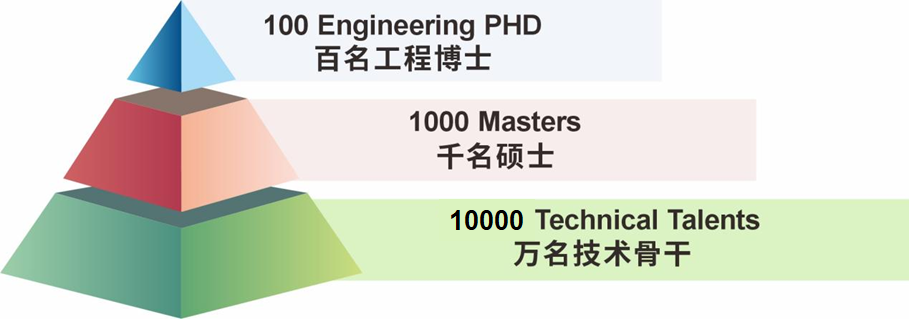
3. Provide Green Power: Offer sustainable solutions to Belt and Road countries and promote a global low-carbon transition.
UNGC Belt and Road Committee Members Visit GEM Bandung Joint Laboratory
On the eve of the summit, dozens of members of the 2025 High-Level Steering Committee of the UNGC Belt and Road Action Platform, along with media representatives, visited the Bandung Joint Laboratory. The platform is the only international mechanism under the Belt and Road Initiative guiding companies to align operations with the UN Sustainable Development Goals (SDGs). Professor Xu Kaihua warmly welcomed the guests.
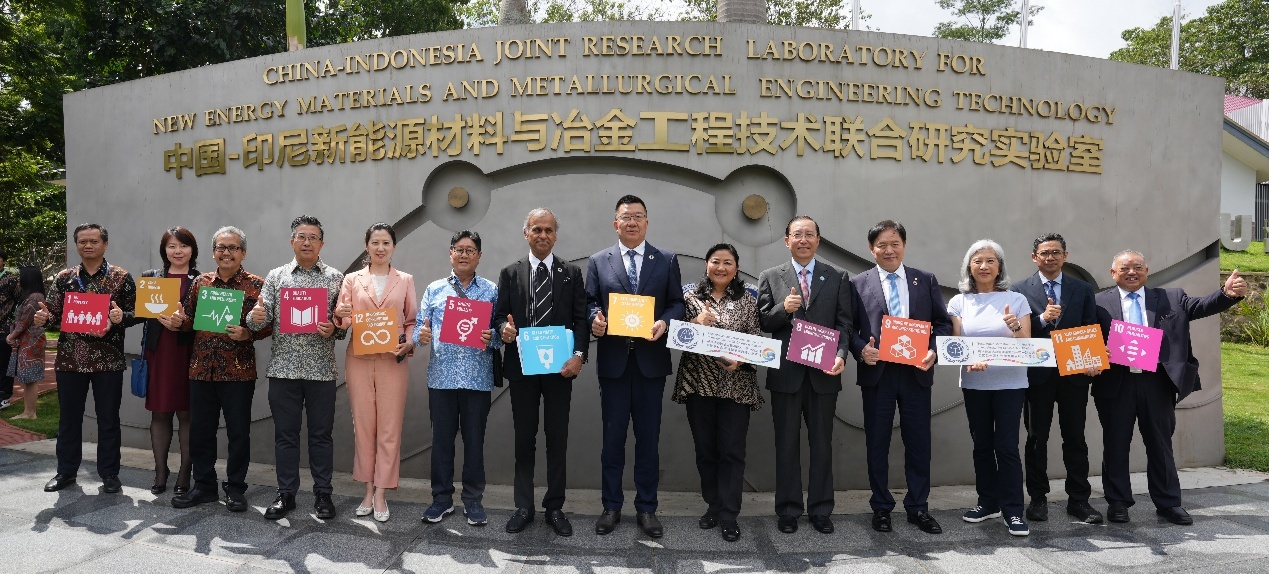
▲Chairman Xu Kaihua and other high-level committee members of the United Nations Global Compact, along with representatives from Bandung Institute of Technology, took a group photo in front of the Bandung Joint Laboratory
Chairman Xu Kaihua expressed his heartfelt thanks to the distinguished guests and media friends who had traveled from around the world to witness the launch of the Bandung Joint Laboratory. Chairman Xu remarked: “Bandung is the birthplace of the spirit of unity, friendship, and cooperation. The GEM–Bandung Joint Laboratory is not only a bridge carrying forward the Bandung Spirit after 70 years, but also a bridge of friendship among countries under the Belt and Road Initiative, marking a new journey for China–Indonesia cooperation from high-speed rail development to technological innovation.”

▲Professor Xu Kaihua delivers a speech as a High-Level Steering Committee Member of the Belt and Road Initiative Platform of the United Nations Global Compact
Cherie Nursalim, representative of the High-Level Steering Committee of the Belt and Road Initiative Platform of the UN Global Compact and International Advisor of the Tsinghua Institute for Sustainable Development Goals (SDG), expressed her honor in witnessing the Bandung Joint Laboratory as an outstanding example of industry–academia–research cooperation. She noted that this was a joint achievement by China and Indonesia in response to global environmental challenges, and that Chinese companies like GEM are playing an active role globally in solving environmental issues and promoting carbon neutrality.
Mr. Siddharth Chatterjee, UN Resident Coordinator in China, stated that environmental protection is not solely the responsibility of governments—it is a shared duty of enterprises, universities, civil society organizations, and every citizen. GEM, by establishing scholarships at Bandung Institute of Technology, is promoting global ESG development through a joint effort between academia and industry.
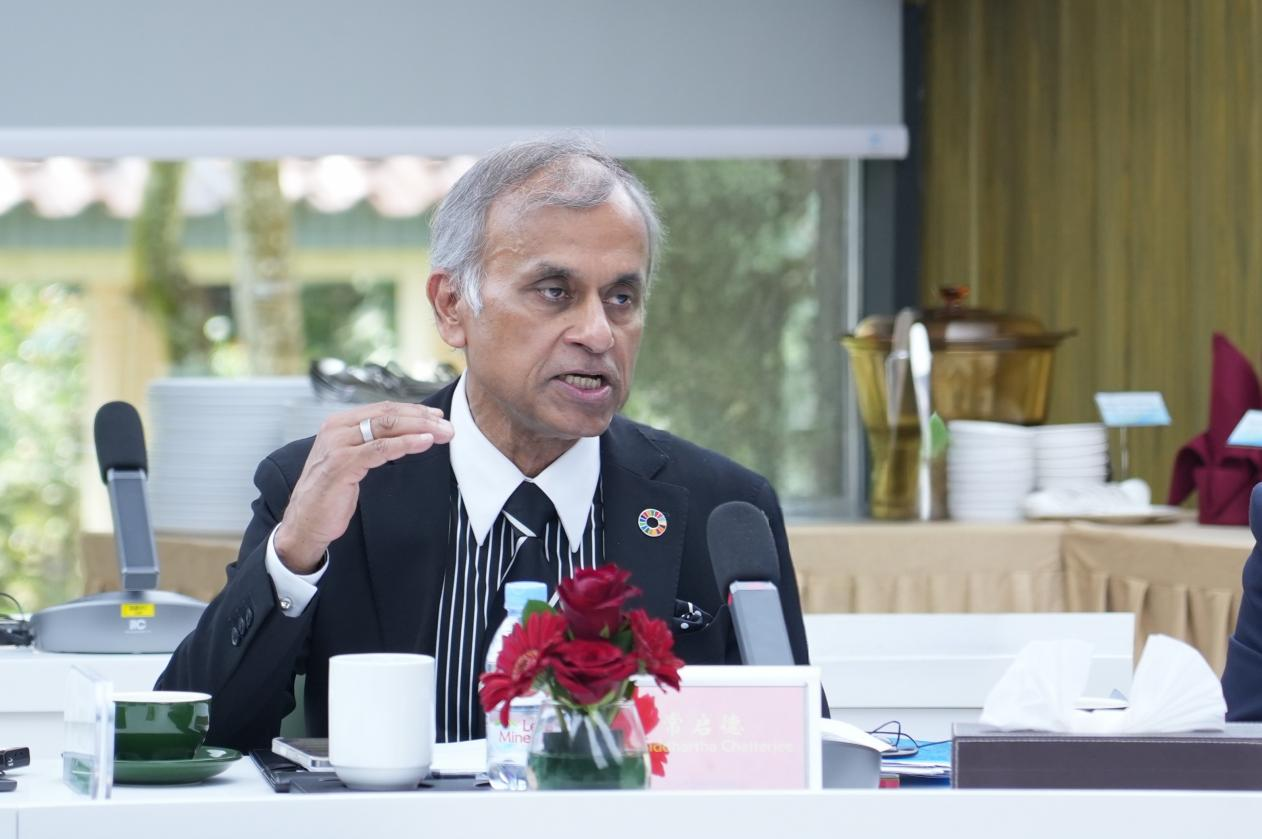
▲Mr. Siddharth Chatterjee, UN Resident Coordinator in China, delivers a speech
At the forum, the Belt and Road Initiative Platform of the UN Global Compact officially announced the appointment of Professor Xu Kaihua, Founder and Chairman of GEM, as a new member of its High-Level Steering Committee, recognizing him as one of the ten globally distinguished entrepreneurs on the committee.
Professor Xu Kaihua stated that, as both a Chinese entrepreneur and a professor, the pursuit of green and sustainable development has been his lifelong mission. Twenty-three years ago, he founded GEM based on the principles of “GREEN, ECO, and MANUFACTURE,” reflecting his unwavering commitment to green ideals. In February 2002, he became the first to propose in China the concept of “limited resources, infinite recycling,” and advocated for the development of urban mines to alleviate resource shortages and environmental pollution.
Over the past two decades, GEM has evolved from recycling small batteries to processing electronic waste, end-of-life vehicles, critical minerals, and remanufacturing power batteries and materials. GEM has established 16 recycling and new energy material bases in China, South Korea, Indonesia, and South Africa, forming recycling partnerships with 500 million people and over 900 auto and battery manufacturers. GEM’s market share in power battery recycling and e-waste treatment exceeds 10% both in China and globally, making it a pioneer in advancing China’s circular economy.
In the past five years, Professor Xu Kaihua has proposed a sustainable investment strategy focused on the integration of industry, science, and culture, advocating shared growth with Indonesia. In addition to the Bandung Joint Laboratory, GEM has invested USD 3.7 billion in Indonesia to build the country’s first high-tech industrial park that produces new energy materials from laterite nickel ore. Employing low-carbon technologies and a “Green + Technology + Intelligence” model, the park is helping transform Indonesia’s nickel industry into a new energy powerhouse, creating 7,000 local jobs annually.
Since 2019, GEM has also launched the “Indonesian Government – GEM – CSU Joint Engineering Master and PhD’s International Training Class,” starting with one metallurgy class and expanding to four classes across three majors—metallurgy, railway transportation, and international trade. From 22 students in the first cohort to 100 in the fourth, a total of 183 engineering master’s and doctoral students have been trained. Over the next five years, GEM plans to cultivate 100 PhDs, 1,000 engineering master’s students, and 10,000 technical workers for Indonesia. At the same time, GEM will continue to uphold the Ten Principles of the UN Global Compact, advancing sustainable development among countries under the Belt and Road Initiative through technological collaboration and cultural exchange.
During the forum, Professor Xu Kaihua, Chairman of GEM; Professor Irwan Meilano, Vice Rector of ITB; Professor Reini Wirahadikusumah, former Rector of ITB; Professor Zaki Mubarok, Vice Dean of the Graduate School of ITB; Ms. Yang Minde, Chairwoman of Esquel Group; Mr. Zhao Dong, Chairman of Xiamen Airlines; and Ms. Liu Meng, Head of Asia Pacific Networks of the United Nations Global Compact, jointly presented awards to the outstanding undergraduate, master’s, and doctoral students who received the inaugural “GEM–ITB Scholarship” and took group photos with the award recipients.
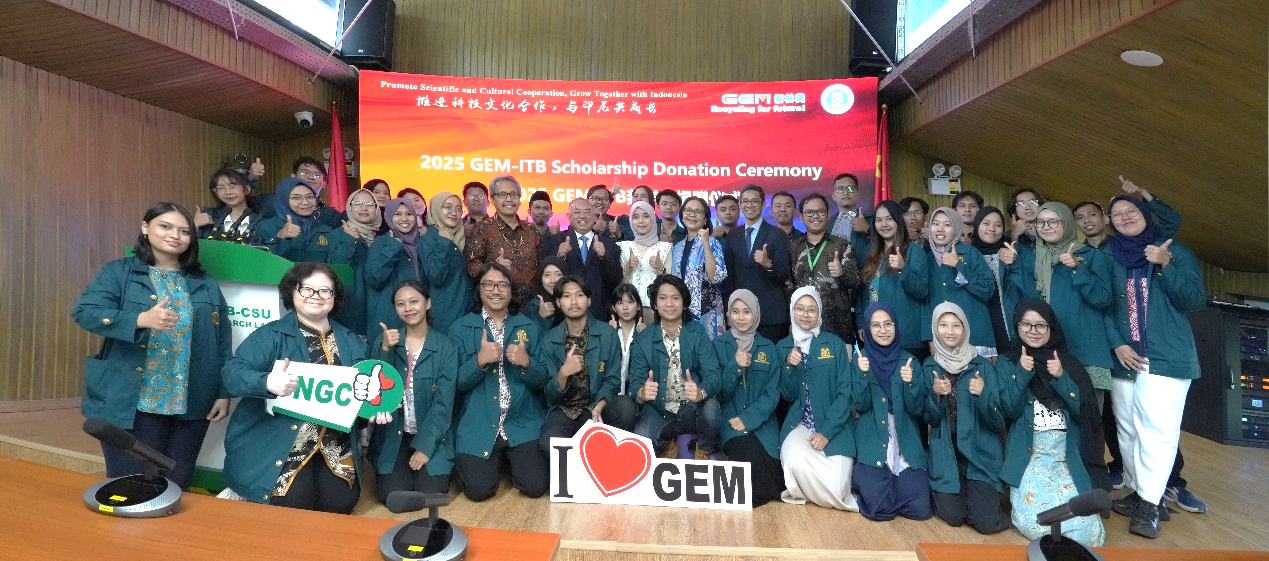
▲Professor Xu Kaihua, UNGC High-Level Steering Committee Members, ITB leadership, and guests take a photo with scholarship recipients
At the end of his speech, Prof. Xu quoted Confucius’s classic vision of an ideal society: “When the Great Way prevails, the world is for everyone.”He emphasized that the successful operation of the Bandung Joint Laboratory and the Faculty of Future Metallurgy, both collaborative projects between China and Indonesia, are intended to build bridges of unity, friendship, and cooperation. Lighting the way for others also illuminates one’s own path to the world. Let us join hands and pass on the powerful message of sustainable development for humanity!
BottomGraphic · MainBusiness · CentralScroll ·
GEM Introduction Guangdong ICP No. 11096806-1©2008-2021 GEM Co., Ltd. All rights reserved
Address:Sopo Del Tower A Lantai 22 Unit A, Jalan Mega Kuningan Barat 3 Lot 10.1-6 Kawasan Mega Kuningan, Jakarta Selatan 12950
Telephone:+62-2150806594

Scan QC Code
BottomGraphic · MainBusiness · CentralScroll · GEM Introduction Guangdong ICP No. 11096806-1©2008-2021 GEM Co., Ltd. All rights reserved